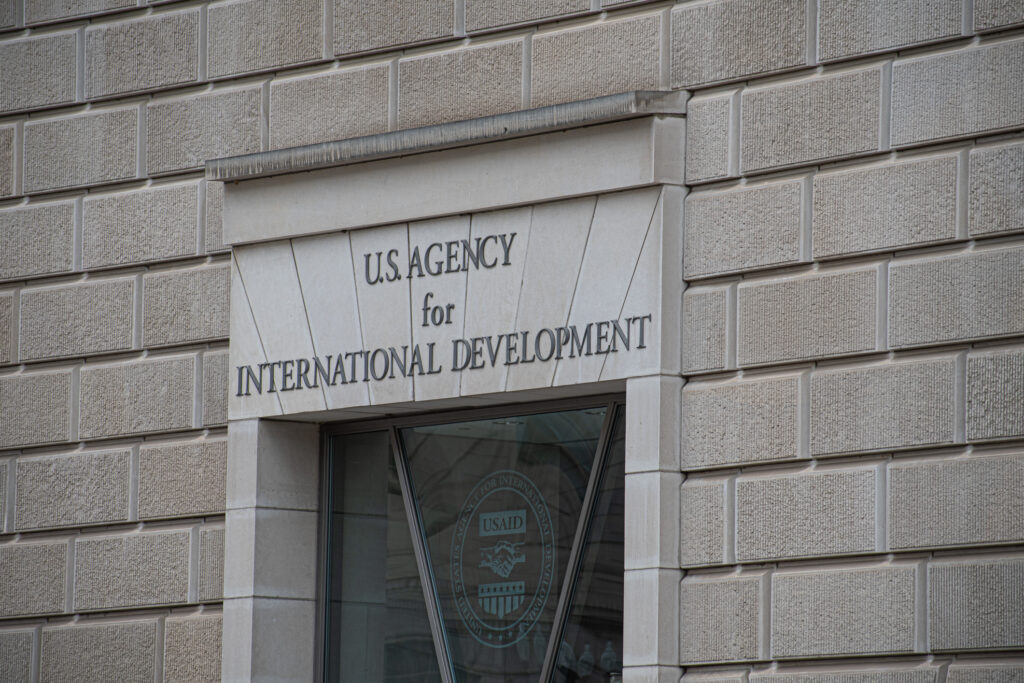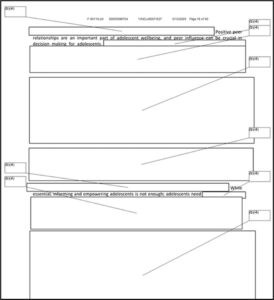Last year, the Lepanto Institute and Population Research Institute conducted a joint year-long investigation of Catholic Relief Services activities in three African countries: Cameroon, Zimbabwe, and Lesotho. We discovered that CRS was pushing pornographic sex education, condoms, and abortifacient contraceptives on minor girls. CRS denied everything,
So the Lepanto Institute filed Freedom of Information Act (FOIA) requests to find out exactly what CRS told their friends at USAID they were doing in Cameroon, Zimbabwe and Lesotho. It took USAID’s FOIA office a year and a half to respond. And when they finally did, so much of the text was blacked out that it was virtually unreadable.
This was a cover-up in plain sight.
Our 130-page report, jointly released by PRI and Lepanto, was based on a year-long on-the-ground investigation of three African countries where CRS was running projects. We found the same things happening there that we found in Madagascar a few years ago: CRS personnel and partners admitting that Catholic Relief Services is directly responsible for the promotion and distribution of abortifacient contraceptives and condoms in Africa. Needless to say, this is a grave violation of Church teaching.
Knowing that population control has been a USAID priority over the years, we were sure that CRS had accepted this funding knowing that they would have to cross the line separating genuine charity from government-funded programs to drive down the birth rate. We also suspected that, in order to receive the funding, they would have to report back to their federal overseers how many teenage girls they had inducted into such immoral programs, and how many abortifacients and condoms they had distributed through their partners.
Lepanto filed no fewer than four FOIA requests with USAID. Yet Michael Hichborn told me he has finally received a response to one: Cameroon. But of the 319 pages of CRS documents on Cameroon, over two-thirds have been redacted. And when I say “redacted” I mean that nearly all the text is totally blanked out.
In my opinion, someone is trying to send evidence of CRS’s wrongdoing down the memory hole. And because of the cover letter from the USAID FOIA Office, we know exactly who that someone is, because they told us!
We reviewed the responsive document, the submitter’s objections to release, and relevant case law, and we determined that portions are exempt from disclosure under subsection (b)(4) of the FOIA and must be withheld to protect the submitter’s confidential commercial information. Within the records, we withheld financial information such as percentages and other expenditures.
In other words, all of these reports on CRS’s activities in Cameroon, which were submitted by CRS to USAID, were given back to CRS (“the submitter”) to remove anything that they didn’t want American taxpayers—including Catholics—to know about their activities. And they removed nearly everything on the grounds that it is “confidential” or “financial.”
See what you make of the following page of information that we received:
In other words, we Catholics are not allowed to know what CRS is actually doing in Cameroon and how much money they are spending on various population control/sexual and reproductive health projects. We just have to take their word that everything conforms to Catholic teaching.
I am afraid that their word just isn’t good enough anymore. We will continue to look into questionable CRS programs that may have slipped by the recent funding cuts of 83% of USAID’s budget.
Catholic Relief Services should abide by Catholic teachings and answer to its Catholic donors, not be in cahoots with anonymous bureaucrats at USAID who allow it to cover up its activities.
Let your bishops know.








